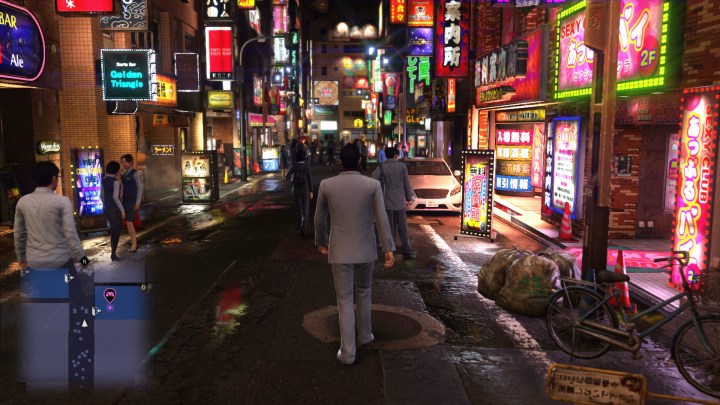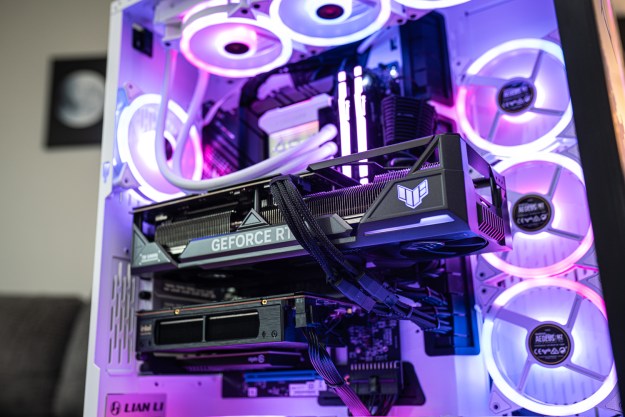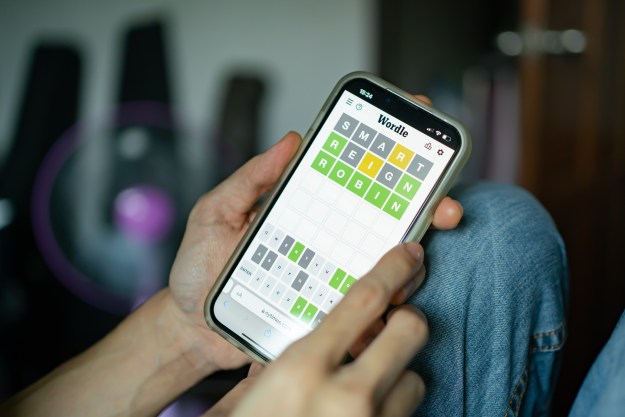
In last year’s SEGA Sammy shareholders’ report, it was revealed that Yakuza 6, the latest entry in the Japanese crime franchise released in February, had sold just as much abroad as it did in Japan. By the same token, Persona 5, which launched in April of 2017, sold double the amount it made in Japan, overseas. The news came as a surprise: These franchises are popular in Japan but considered relatively niche games in English-speaking markets. In the report, SEGA attributed the high sales to the strength of the localization teams, believing their translation to be the main factor in the games finding such wide audiences.
Localization is a crucial facet of the industry; companies like Nintendo and Square Enix owe no small part of their cultural foothold to their translators. But as major a discipline as localization is, it’s one whose influence can often go overlooked or undermined. Yakuza 6 and Persona 5 are both games with perspectives that are deeply rooted in their home country. Their success is emblematic of the power of a good translation, a practice that can bridge cultural divides and place more distinct titles into the hands of players.
The Yakuza and Persona series aren’t an easy sell in the West; they rely heavily on Japanese perspective and day-to-day life.
For the Yakuza 6 team, the sales are a pleasing end to a long journey. “We’d always considered Yakuza 6: The Song of Life the peak of the three-part mountain we were climbing with Yakuza 0 and Yakuza Kiwami,” Scott Strichart, Localization Producer on Yakuza 6, told Digital Trends. “So to see that happen was very validating.”
Yakuza 0 and Yakuza Kiwami were both released worldwide in 2017, and the process for 6 started before Kiwami had gone gold. Strichart was involved with several games, including the aforementioned, all with an incredibly close release schedule. A backlog had formed within the Yakuza series and another game Sega wanted to put out. But getting Yakuza 6 out was a priority, and for that Strichart was given his biggest team yet. This team featured three translators — Dan Sunstrum, Nagisa Mihara, and Mino Iwasaki — and two assisting editors — Jon Riesenbach and Rich Brady.
It was a hectic and difficult period. “We’d released Yakuza 0 in January 2017, Kiwami in August 2017, and we weren’t about to expect the same audience to open their wallets in less than six months to purchase yet another title,” He said. “We were very much between a rock and a hard place in the West, but I think we navigated it as best we could with respect to the fans and the retailers.”
They did very well, performing above expectations due to what SEGA deems the “unique worldviews” of these games. The Yakuza and Persona series aren’t an easy sell in western territories due to their particular reliance on Japanese perspective and day-to-day life. They’re games about living in Japan and much of their delivery assumes players understand that culture. But while Yakuza 6 certainly has its eccentricities, these have been seen as things to celebrate rather than play down, and it’s this strategy that has worked so far.
“Persona 5 is really a game that spoke to Japanese people about Japanese problems in terms of work and society and politics on their terms.”
“That strange humor and melodrama is a key part of the game’s basic identity, so if we were worried about those aspects of it not landing, it probably wouldn’t be prudent to publish the game at all,” said Scott. “We put these games out with complete confidence that this distinctive quality is what separates it from the pack, and so far, it’s landed every time.”
Amid all the weird jokes and heightened tone, Yakuza 6 is bolstered by its recreation of Japanese locations. The way Tokyo and the surrounding areas are replicated can be very potent, both for current residents and those admiring from afar. “There’s an attention to detail in the aesthetic design that evokes very real memories for people who’ve lived there,” Tom James, a freelance games translator, explained. “Or evokes a deeper sense of what Japan is for people who haven’t been there than what you might get from something that was more deliberately stylized.”

Tom has been working as a Japanese-to-English translator for several years now, with credits in games such as Monster Hunter Generations Ultimate and Tales of Beseria. Having lived in Japan and something of a specialist when it comes to Japanese titles, Tom believes that Persona 5 is one of the boldest games of its size, tackling difficult ideas in Japanese life.
“Persona 5 is really a game that spoke to Japanese people about Japanese problems in terms of work and society and politics on their terms,” He told Digital Trends. “In a way you don’t often see with games, and media in general, on that sort of budget and scale.”
The dialogue and characterization are strikingly specific in how they reference certain anxieties, especially to the intended 15-and-up audience in Japan. “You saw a much franker script than you usually get out of the media there, and it resonating abroad is a testament to how prevalent those issues are.”
Even if what was being said sounded a little odd, it was kept, hoping players will appreciate it, taking liberties only where necessary.
Persona 5 follows a group of teenagers trying to stop a corrupt politician from seizing power through nefarious means, and it’s not hard to see where issues would overlap. But making sure the same ideas are perceived in the same way can be tricky. Tom praises Yakuza’s translation for keeping the specific inflection intact, noting that Japanese gangsters don’t carry themselves the same way as the Italian-American stereotypes that Western audiences are familiar with, even with a lot of broad resemblances.
“There’s always going to be some misogyny, for lack of a better word. You have to evoke, sometimes, similar ideas but from a different place, in order to get audiences abroad to understand the overall mentality, especially in terms of how these characters are expressing their masculinity and what not.”
Preserving as much of the original team’s work was a central focus for Yakuza. For a bulk of the dialogue, the guiding principle was the voice audio, meaning even if what was being said sounded a little odd, it was kept, hoping players will appreciate it, taking liberties only where necessary.
“I’m sure some players think we do overreach a little, while others appreciate that by taking what might seem like an occasional liberty, that we’re telling the story of the game in a way that was always intended to be gripping,” Scott mused. “It’s all about respect of the source material — for every bit of charm we may have lost in translation, hopefully there was some bit of charm to be gained elsewhere by nature of converting it to English.”
“The beauty of this … industry is that we’re all constantly learning from the things that others get right or wrong to further our own craft.”
Yakuza 6 didn’t leave much wiggle room for added context regardless, and Steve concedes that you just can’t predict what people will gravitate to. With the memes and jokes the series has spawned, he and his team are happy that players are laughing at a game that’s meant to be funny. The team did make a list of little additions, like the Lenny face in the in-game live chat and the backward ‘K’ that indicates a strikeout when playing softball, that they felt helped the situations pop and English-speakers understand it better.
There were also some instances where the language demanded a near overhaul. “We localized the bar-chat mini-game straight, only to realize it was literally unplayable that way and had to rewrite the dialog selections with a new approach,” described Strichart. “Japanese conversational form is so unique that players there can understand whether the conversation should be continued with an ‘I see’, an ‘Oh’ or an ‘Is that so?’ that English simply does not support. Things like that are what this team brings to the table to make sure the games are playable in our market.”

As these types of games become more and more popular, Tom believes we can expect a snowball effect. “The way the Japanese domestic market is, with console games especially, it’s very difficult for them a lot of the time to make their money back because of general population trends and the market shifting towards being mobile dominated,” He asserts. “Once you get past a certain scope of game, developers are already going in assuming they’ll have to localize just to potentially make their money back, let alone make a profit, whether that means doing more Asian languages or English-speaking markets.”
Additional growth for localized games is something Scott hopes for, viewing the process as a group effort everyone benefits from. “The beauty of this tiny corner of the industry is that we’re all constantly learning from the things that others get right or wrong to further our own craft. So many teams in this space do amazing work, but we all have different localization philosophies and processes, even among our own brands.”
“What works for my titles wouldn’t work for every title out there, so it’s not like I can pinpoint anything specific, but the simple act of playing other localized titles is almost like collaborating with teams you’ve never met. It’s cool.”








